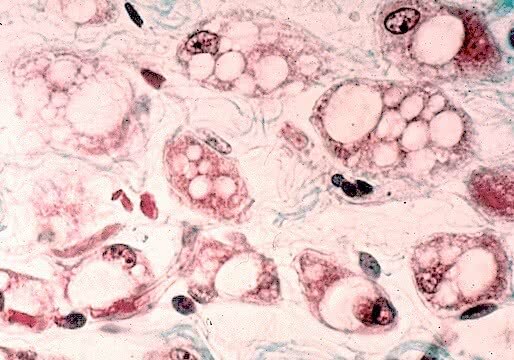Brucellosis (Malta fever): this disease, whose responsible agents are bacteria of the genus Brucella, is transmitted by manipulation or ingestion of meat, milk or byproducts from contaminated animals, and which have not undergone the process of pasteurization. Thus, professionals who work with these animals are at greater risk of being contaminated by this bacteria. It can manifest asymptomatically or, in the acute form, the patient presents with attacks of high fever, usually in the late afternoon, in addition to chills, pallor and headache.
soft cancer: caused by Hemophilus ducreyi, is a sexually transmitted disease that causes painful, soft lesions in the genital region. Purulent sores may also appear. For treatment, it is necessary to use antibiotics and sexual abstinence.
Dental cavity: it is usually the result of unsatisfactory oral hygiene. Such as Streptococcus mutans, typical of the oral cavity, feeds on carbohydrates, this condition allows it to have a large availability of these organic substances. Thus, for its digestion, it releases acids that destroy the dental tissues and cause characteristic deteriorations.
Do not stop now... There's more after the advertising ;)
Cystitis: characterized by inflammation of the urinary bladder, causing burning when urinating, may be caused by Escherichia coli or Staphylococcus saprophyticus: typical bacteria of the urogenital opening. Affecting mainly women, transmission is generally due to the lack of more effective hygiene measures and sexual activity.
THE MINISTRY OF HEALTH WARNS:
Self-medication can have unwanted and unanticipated effects, as the wrong medicine not only does not cure, it can worsen your health.
By Mariana Araguaia
Graduated in Biology
Would you like to reference this text in a school or academic work? Look:
ARAGUAIA, Mariana. "Brucellosis, soft cancer, tooth decay and cystitis"; Brazil School. Available in: https://brasilescola.uol.com.br/biologia/brucelose-cancro-mole-carie-dentaria-cistite.htm. Accessed on June 28, 2021.


